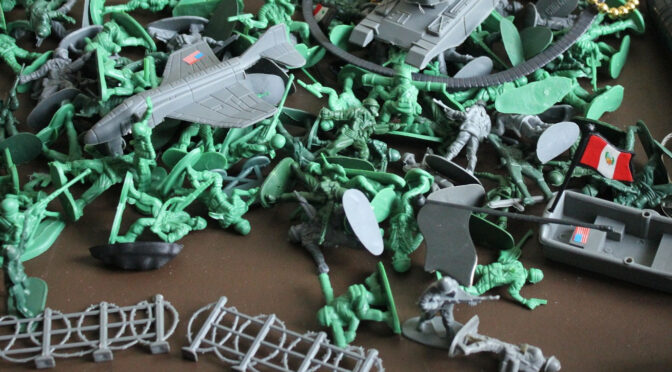Article published by the Gatestone Institute, 13 May 2018. © Richard Kemp
I predict a riot — and much worse. The Palestinian terrorist group Hamas is orchestrating a ‘demonstration’ at the beginning of this week of up to 200,000 people on the Gaza border with Israel, and is intent on turning it into an orgy of death and bloodshed. If that happens, the UN and EU, human rights groups and many Western media organizations will have helped bring it about.
Hamas, which governs the Gaza Strip, is planning the bloody culmination of six weeks of violence along the border that has so far led to the deaths of around 50 of their own people and wounding of hundreds more. Now they intend to pile the bodies higher still, exploiting what they see as a perfect storm. It is the seventieth anniversary of the creation of the modern State of Israel — a date that Palestinians revile as ‘Nakba’ or ‘Catastrophe’ Day. It coincides with the opening of the US embassy in Jerusalem, a move abhorrent to those who consider the existence of the Jewish State illegitimate. And it is the beginning of the Islamic festival of Ramadan, a time when violence throughout the Muslim world often spirals.
Hamas claim that the purpose of their ‘demonstrations’ is to break through the Israeli border en masse, march through the country and reclaim the homes that they say their people were thrown out of when Israel was formed — exercising the strongly disputed ‘right of return’. But they know they cannot achieve that in the face of the formidable Israel Defence Force.
So the true and malevolent purpose of Hamas’s plan is to incite violence in such a way that the IDF has no choice but to respond with lethal force, killing Gaza civilians. This makes Hamas the first government in history to deliberately lure its enemies to kill its own civilian population. Why does it wish to sacrifice its people so barbarically? To bring down upon Israel the vilification of the Western world. To isolate and criminalise the country and cause condemnation by political leaders, the UN and the EU, human rights groups, academics and the media.
Hamas has followed this strategy many times in the past, firing rockets at Israeli civilian communities and constructing under the border sophisticated attack tunnels from which fighters would storm into the heart of Jewish communities and carry out mass murder and abduction. Thousands of Palestinians have died, including human shields that are so central to Hamas’s strategy, as the IDF has been compelled to forcefully defend its people. The world has often reacted with horror and outrage, blaming Israel for the bloodshed provoked by Hamas — just as intended.
If anything, Hamas’s current plans are even more effective. Rockets and attack tunnels look like what they are — engines of war. But political leaders, international organizations, human rights groups and the media — the primary targets for Hamas’s lethal propaganda — find it hard to understand how demonstrations, falsely portrayed as peaceful, like they might see in their own cities, can pose a sufficient threat to warrant the use of deadly force. Continue reading →








